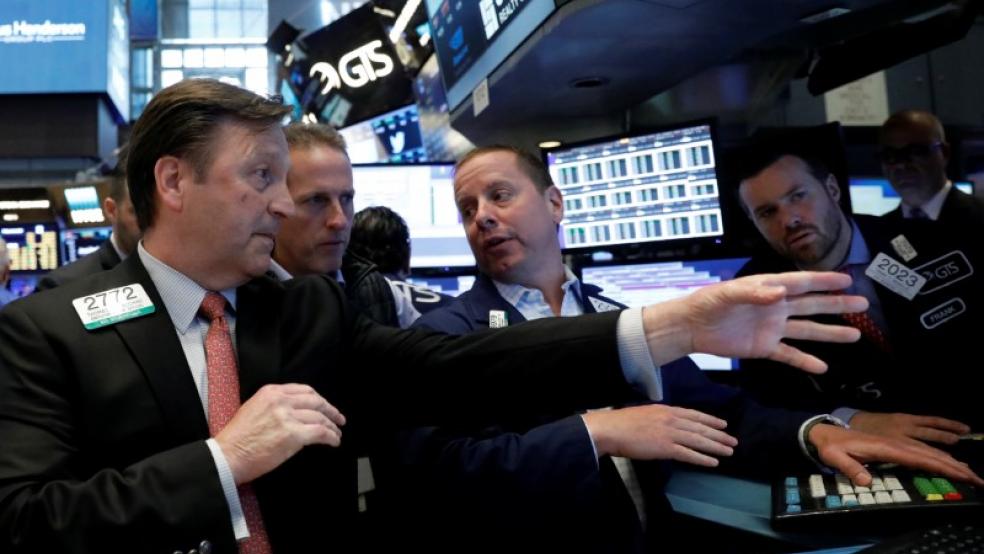(Reuters) - Donald Trump’s firing of FBI Director James Comey caused barely a ripple on the glassy surface of equity markets, but more than 100 years of market and social data show that might be a mistake.
Or perhaps just premature: the long-term correlation between the future returns of financial markets and indicators of a healthy democracy and society are strong, according to a recent study.“We have documented that, over a five- or 10-year time scale, there has historically been, on average, a consistent positive correlation between future returns of a country’s stock market and past changes of the same country’s indicators that are socially ‘good’,” Scott Axelrod and James Leitner of Falcon Management wrote in a December 2016 working paper for Sweden’s Varieties of Democracy Institute. (https://www.v-dem.net/media/filer_public/85/5b/855b0a07-a72f-4750-8b03-e...)The institute has a database of indicators of a country’s democratic health, with data for 173 countries going back as far as 1900.The indicators cover a wide range of areas of democratic function: from equality before the law, to government attacks on the judiciary, to the ability of legislative investigations to curb abuse by the executive branch of government. Do any of these sound familiar to observers of the Trump White House?The study looked at 158 indicators, making a subjective judgment as to whether they were “good” and then comparing them to future stock market returns."The average over all four studies of the total correlation (across country-year pairs) between ‘good’ past democracy indicators changes and future stock market returns is positive for 157 out of the 158 indicators that were selected solely based on whether they had enough data,” the authors write.In other words, more democracy pays off in higher long-term stock market returns.We should note that many of the studied indicators are not mutually independent, meaning that they will tend to move together. A country which is, for example, limiting freedom of speech will often lack a variety of viewpoints in media, both measured areas.To be sure, it is too early to have a full understanding of the intentions of the Trump administration in firing Comey, who had responsibility over investigations into connections between his presidential campaign and Russia.BOILING A FROGThus while the stock market is more likely to move today in reaction to estimations of how successful the administration will be in passing tax cuts, the development and strength of U.S. democratic institutions may be more important to returns over the very long term.Interestingly, the one indicator not deemed “good” which correlated positively with future stock market returns was “institutionalized autocracy”, i.e. the extent to which power was vested in one person.This is perhaps related to the argument which is sometimes made that China demonstrates that economic development need not go hand-in-hand with growing democratic freedom.Perhaps not, but at least when it comes to China it seems a strong one-party state does also not go hand-in-hand with profitable stock markets. Despite China GDP increasing nine-fold from 1999-2015 its stocks have lagged. The MSCI China index only rose 29 percent from 1991 to 2015, compared to a 326 percent rise for emerging markets as a whole.Putting aside the meaning of the actions of the Trump administration, anything other than a dire constitutional crisis in which, perhaps, the executive openly challenged its place in the order is unlikely to produce a big reaction.A 2015 study by Heikki Lehkonen and Kari Heimonen of Finland’s Jyväskylä University found that while there was a positive relationship between political risk and equity returns, the relationship between the level of democracy in a given market and political risk is parabolic, meaning higher levels of political risk create outsized market impacts. (http://www.sciencedirect.com/science/article/pii/S0261560615001023)Perhaps the impact of the erosion of democracy on markets is a bit like the old metaphor of boiling a frog. The water gets warmer and warmer, and finally hot, but by the time the frog notices and decides to get out, it is too late.We may not be frogs, and Trump may not wish or not be successful in subverting the strength of U.S. democracy, but investors inside and outside the U.S. should take careful note. (Editing by James Dalgleish)If Trump erodes democracy, stocks will suffer: James Saft

Shannon Stapleton



